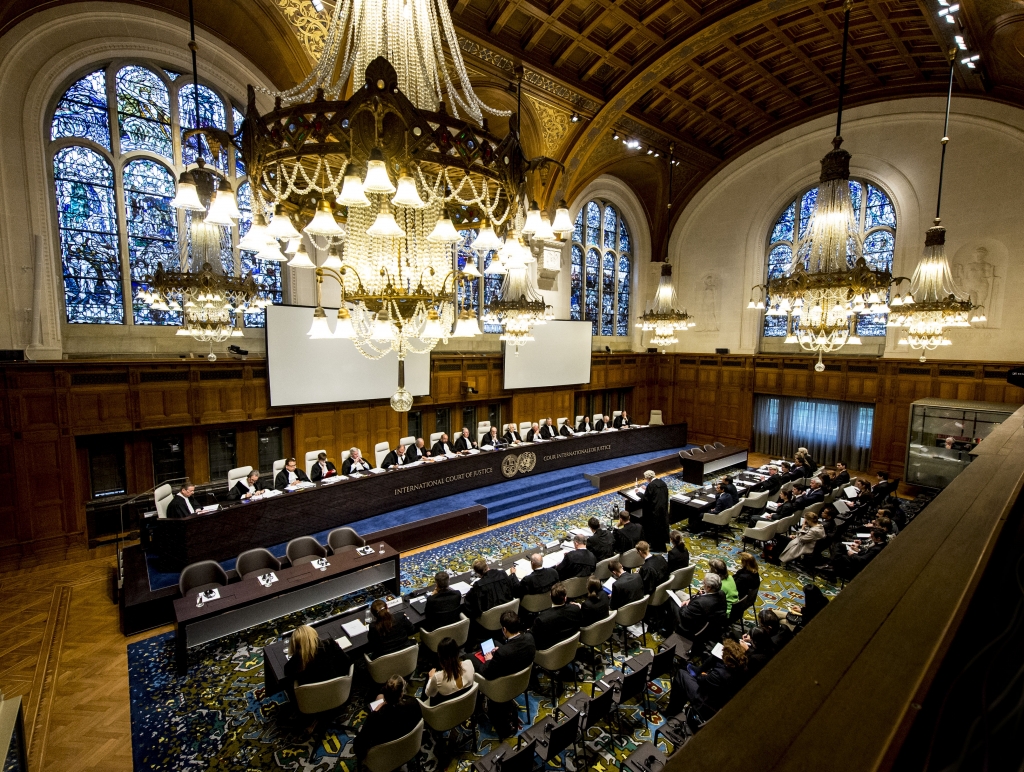The International Court of Justice (ICJ) stands as a monumental edifice in the realm of international law, much like a lighthouse guiding ships through tempestuous waters. Established in 1945 by the United Nations, it serves as the principal judicial organ of the UN, entrusted with resolving legal disputes between states and providing advisory opinions on legal questions referred to it by other UN organs and specialized agencies. In today’s complex global landscape, the role of the ICJ transcends mere adjudication; it is a reflection of humanity’s striving for justice and peace—principles that resonate with the Christian ethos of reconciliation and communal harmony.
A foundational aspect of the ICJ’s mandate is its commitment to peaceful conflict resolution. The court addresses a plethora of contentious issues, ranging from territorial disputes to maritime boundaries and cases involving state sovereignty. In this respect, the ICJ functions as a mediator, much like the Paraclete, advocating for understanding and resolution amidst disagreement. The Christian perspective underscores the importance of such mediation. Jesus Christ, the ultimate peacemaker, taught His followers to seek harmony and resolution, urging them to turn the other cheek and pursue peace with their adversaries. In this light, the ICJ’s endeavors mirror the call for reconciliation inherent in the Gospel.
One of the hallmark features of the ICJ is its reliance on international law. The court adjudicates cases based on treaties, customary international law, and judicial decisions, an approach that underscores the moral imperative for nations to adhere to principles of fairness and justice. This reliance on law can be likened to the Christian belief in divine law—a set of immutable principles governing human behavior. Just as Christians are called to uphold and reflect God’s statutes in their daily lives, states, too, are urged to adhere to the established norms of international law for the betterment of humanity.
The ICJ not only settles disputes but also plays a pivotal role in shaping international law. Through its rulings, the court contributes to the development of legal doctrine, much like the early ecumenical councils guided the evolution of Christian doctrine. When the court issues a decision, it does not merely resolve the immediate conflict; it also sets a precedent that informs future cases. This is reminiscent of the way parables impart timeless lessons for ethical and moral reflections. Each ruling becomes a cornerstone for building a more just international framework, echoing the Christian mission of striving toward a kingdom governed by righteousness.
Moreover, the ICJ’s advisory opinions serve as a beacon of guidance for the international community. They address complex legal and ethical dilemmas that may arise in contemporary global issues, such as environmental protection, human rights, and the use of force. The court’s capacity to offer wisdom and clarification echoes Solomon’s discerning judgment, a biblical metaphor for sagacity in leadership. In a world oftentimes divided by political and ideological schisms, the ICJ’s opinions provide a unifying voice that echoes the call to treat one another with dignity and respect, acting as a moral compass guiding the collective conscience of nations.
However, the effectiveness of the ICJ is not without its limitations. Compliance with its rulings is voluntary, leaving the court reliant on the goodwill and cooperation of states. This reality highlights a fundamental truth within the Christian narrative: the necessity for human agency in the pursuit of justice. Just as faith without works is dead, so too is legal reasoning devoid of the collective commitment of states to uphold rulings. It serves as a reminder of humanity’s fallen state and our continual struggle with sin and selfishness, emphasizing that the path to peace often requires perseverance and mutual accountability.
The symbolism of the ICJ extends far beyond legal proceedings; it embodies a vision for a world where diplomacy, dialogue, and understanding are favored over conflict and discord. Its very existence challenges nations to prioritize negotiation over war and discussion over hostility, aligning with scriptural exhortations for peacemaking. The Beatitudes, particularly “Blessed are the peacemakers, for they shall be called children of God,” echo an inherent yearning for a just and peaceful global community.
Furthermore, the ICJ serves as an educational resource, promoting international law and ethics in both scholarly and practical contexts. Its decisions and proceedings are documented and analyzed, contributing to the global discourse on legal responsibility and moral obligation. In this sense, the court acts as both a teacher and a guide, much like the Good Samaritan, who stopped to assist those in need despite societal boundaries. By illuminating the path toward greater understanding among nations, the ICJ embodies the Christian principle of loving one’s neighbor—encouraging states to act in solidarity with one another.
In conclusion, the International Court of Justice occupies a unique position in the global order, echoing Christian ideals through its commitment to justice, peace, and the rule of law. As nations navigate the complexities of international relations, the ICJ serves as a lodestar, a reminder that true justice is not merely the absence of conflict but the presence of righteousness. It compels the international community to consider the broader implications of their actions, urging all to strive for a world marked by reconciliation, compassion, and unity. In its quest for justice and peace, the ICJ endeavors to foster an environment where the fruits of the Spirit—love, joy, peace, patience—can flourish in a mosaic of diverse cultures and beliefs.



